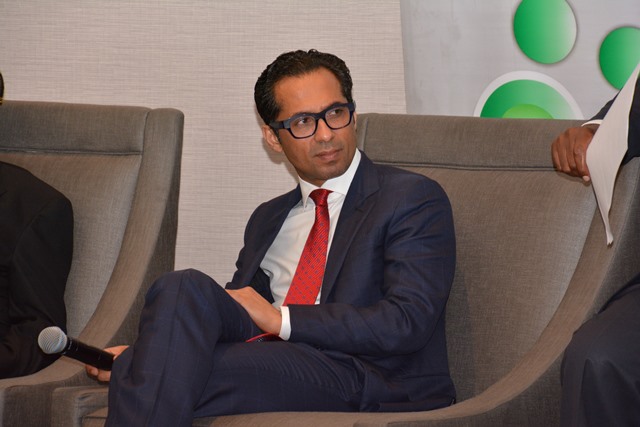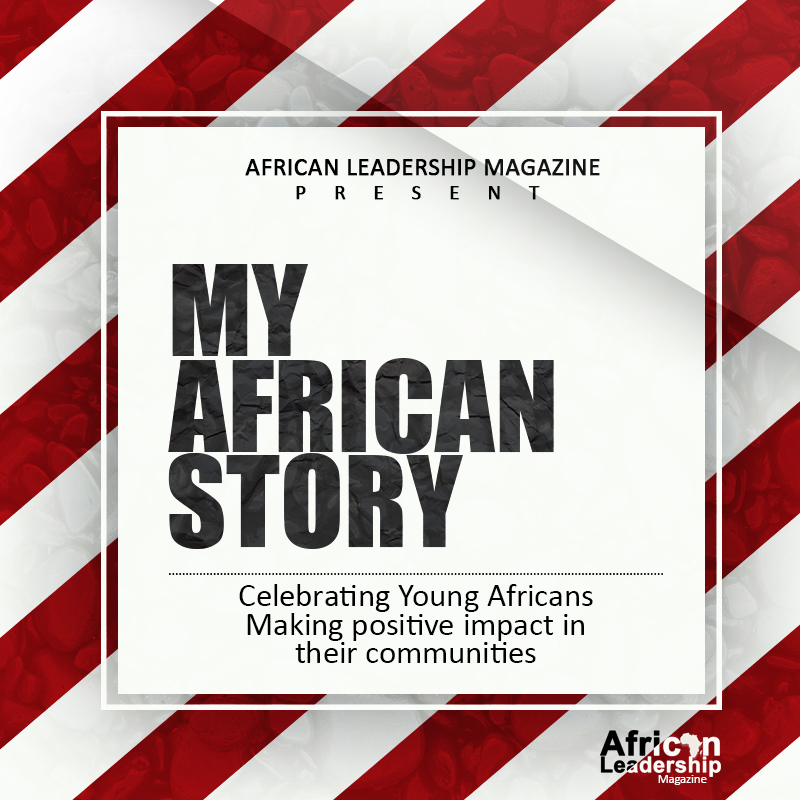
Young, Bold, and Resilient are words that best describe one of Africa’s leading light in business and philanthropy – Mohammed Dewji. Mo Dewji as he is fondly called is one of those best suited to advise governments on job creation. Mr. Dewji whose goal is to invest more than $500 million over the next 4 years in the continent, and in turn, employ more than 100,000 people across Africa by 2021, was voted as African Leadership magazine Man of the Year 2016.
In this exclusive interview with African Leadership magazine’s Kingsley Okeke, Mr. Dewji talks about his plans on job creation as well as his commitment to Philanthropy. Excerpts:
On your Giving Pledge letter, you wrote a famous quote that says, “when God blesses you financially do not raise your standard of living, rather raise your standard of giving” what’s your motivation for committing to philanthropy?
Having witnessed severe poverty throughout my upbringing, I have always felt a deep responsibility to give back to my community. I credit my parents for instilling the ethos of philanthropy, particularly my responsibility as a Muslim to give and care for the less fortunate in our society.I believe, our role as citizens of this world is to truly support the betterment of our society so that future generations and their offspring grow up to live even better lives and strive for even more than they think is possible today.
Philanthropy is the “new green” in the continent, yet, it seems to be an exclusive preserve of the Super Rich; how do you think more Africans can be encouraged to commit to philanthropy, so as to contribute to solving some of the continent’s major problems, one among which is poverty?
I truly believe that charity and philanthropy don’t necessarily mean you have to spend money. There are several avenues available to almost everyone in society, on how to give back. I often tell people, consider donating your time, talents, belongings for the greater good. I think once African’s are aware that these non-financial avenues are equally as important and impactful as donating money –there can be greater collective efforts to helping the less fortunate.
You are Tanzania’s largest employer of labor and recently promised to create about 100,000 jobs in the next four years, how do you intend to achieve this feat?
My goal is to invest more than $500 million over the next 4 years, which will in-turn employ more than 100,000 people across Africa by 2021. MeTL Group is currently undertaking several growth and expansion projects, all of which fall into three broad categories: capital expansion, efficiency, and value chain, and regional expansion.
In the space of capital expansion, MeTL will be upgrading machinery, facilities and overall structures in their edible oils, milling, sisal processing, soap manufacturing, and match-box making industries. Similarly, we will be undertaking efficiency and value chain projects aimed at improving the overall cost and yield in several industries.
One of the key projects that will be undertaken is the transformation of their tea for export business into creating consumer packs for domestic consumption. Similarly, they will be taking their milling of wheat flour to the next level by venturing into final consumer products such as pasta for domestic and eventually regional consumption.
Another notable project that MeTL will be venturing into is sugar production through a new cane-processing factory. The plant will not only produce sugar for domestic use but will also generate electricity and ethanol. With over US$ 280 million committed to this project, the Group aims to employ, at peak production, over 5000 staff alone for this sugar and captive cogen plant in Tanzania.
This project will not only change the livelihoods of the future employees and surrounding communities but will significantly change the competitive landscape for sugar in the country, with the aim of making local sugar affordable and accessible to Tanzanians.
According to the International Labor Organization, the global unemployment rate would rise to about 201 Million in 2017 with a further 2.1 million addition in 2018 expected and Southern Asia and Sub-Saharan Africa are the worst hit with the growing number of unemployed people. As an astute job and wealth creator, what in your view can be done to promptly reverse this trend?
Youth are Africa’s greatest asset. Given this substantial growth, we’re seeing – the private sector and public sector need to collectively harness this potential that exists in this expanding demographic. The growth of the working-age population could support increased productivity and stronger, more inclusive economic growth across the continent.
These millions of young people are sources of ingenuity and engines of productivity that if carefully cultivated – could ignite a new age of inclusive prosperity on the continent. Also keeping in mind that this type of rapid population growth will have a multiplier effect on the market demand for consumer products and services in the future. This presents yet another opportunity for businesses to strategically positions themselves in the region.
Tell us about Mo Cola, one of your products that is giving Coca-Cola a run for its money in Tanzania?
As you know, Coca-Cola has been in Africa for 88 years and is everywhere. My brand of soda has taken 5% of the market in Tanzania since launching three years ago. Now imagine, If I take it to 15%, I will be in the money big time.
The first year was naturally quiet difficult as a new player in the market because I had to convince the public to do-away with big brands (Pepsi, Coca Cola, etc.). However, the Mo Cola value proposition is slightly different and exceptional in its own way. African’s, in general, prefer more-sugary drinks, and this is what Mo Cola brings to the table. I believe this is enough to throw away those deep-rooted big names off the hook in the medium term!
Some businessmen have argued that Business and Politics are two different worlds and must not be combined. As one of Africa’s foremost business leaders and two term MP in Tanzania, what is your take on this?
The relationship between business and politics is quiet intricate and interconnected for the most part. Today the global political landscape is rapidly changing with increased influence from the private sector, to the extent that businessmen are now holding seats in public office, e.g. Donald Trump in the USA and Adam Barrow in the Gambia.
In business, the motive of the provider of the product or service is irrelevant. However, in politics, motivation is the most relevant piece. I read this in an article some years ago: “politics is not a market and a political party is not a brand. “I think there’s much that can be borrowed and learnt from each group. Politicians can learn from the efficiency and productivity of the private sector; the same as businesses can learn from impact investing and stakeholder engagement from politics.
Your emergence as the African Leadership Magazine Person of the Year 2016 with 60.3% of the total votes cast clearly shows your impact and reach in the continent and beyond; what does this award mean to you and what should Africans expect from you in 2017?
Your emergence as the African Leadership Magazine Person of the Year 2016 with 60.3% of the total votes cast clearly shows your impact and reach in the continent and beyond; what does this award mean to you and what should Africans expect from you in 2017?
I often say to people, “Success shouldn’t be solely defined by your wealth. It should be about the positive impact and influence you have on your community.” This award truly captures the essence of this message. The work I’m doing in business and philanthropy in Africa must be one to mirror for my peers across the continent. I’m humbled that my achievements are admirable but I’m more thankful to God for having given me the opportunity to grow and have the impact that I have today in all aspects of my work.
African’s can expect that I will continue to invest my time and funds towards the betterment of our collective society and the advancement of our economy.
Mohammed Enterprises Tanzania Limited (MeTL) had several achievements in 2016, most notably:
1. Our beverages business has seen a significant increase in volumes, approximately 20% for water products, and 50% for carbonated drinks (sodas) compared to last year.
2. We commissioned our new edible oil refinery in Dar es Salaam. It is the largest plant of its kind located at one site for the entire African continent. It consists of refinery, dry-fractionation plant and soap manufacturing, cooking fat and margarine facility. Our capacity is now 2250 tonnes per day.
3. We acquired a cashew nuts processing plant in Mozambique. MeTL Group is currently exporting processed Cashews from Tanzania. We aim to double our trade through value addition and aggressive backward integration with farmers and also expand its own plantations and target production levels of 30,000 tons annually.
4. We launched our Mo Electro products range from TV’s, radios, to other household electronic appliances like microwaves, in our sundries department.
5. We launched our Mo Princess sanitary pads in Tanzania with the aim to support the affordability of this essential product for the well-being of girls in the country.
6. We launched dish wash, hand wash and liquid detergent for our subsidiary, East Coast Oils, and Fats.
7. We acquired land for our diversified expansion projects outside Nacala, Mozambique.
8. We made a bid for a commercial bank in Tanzania.


